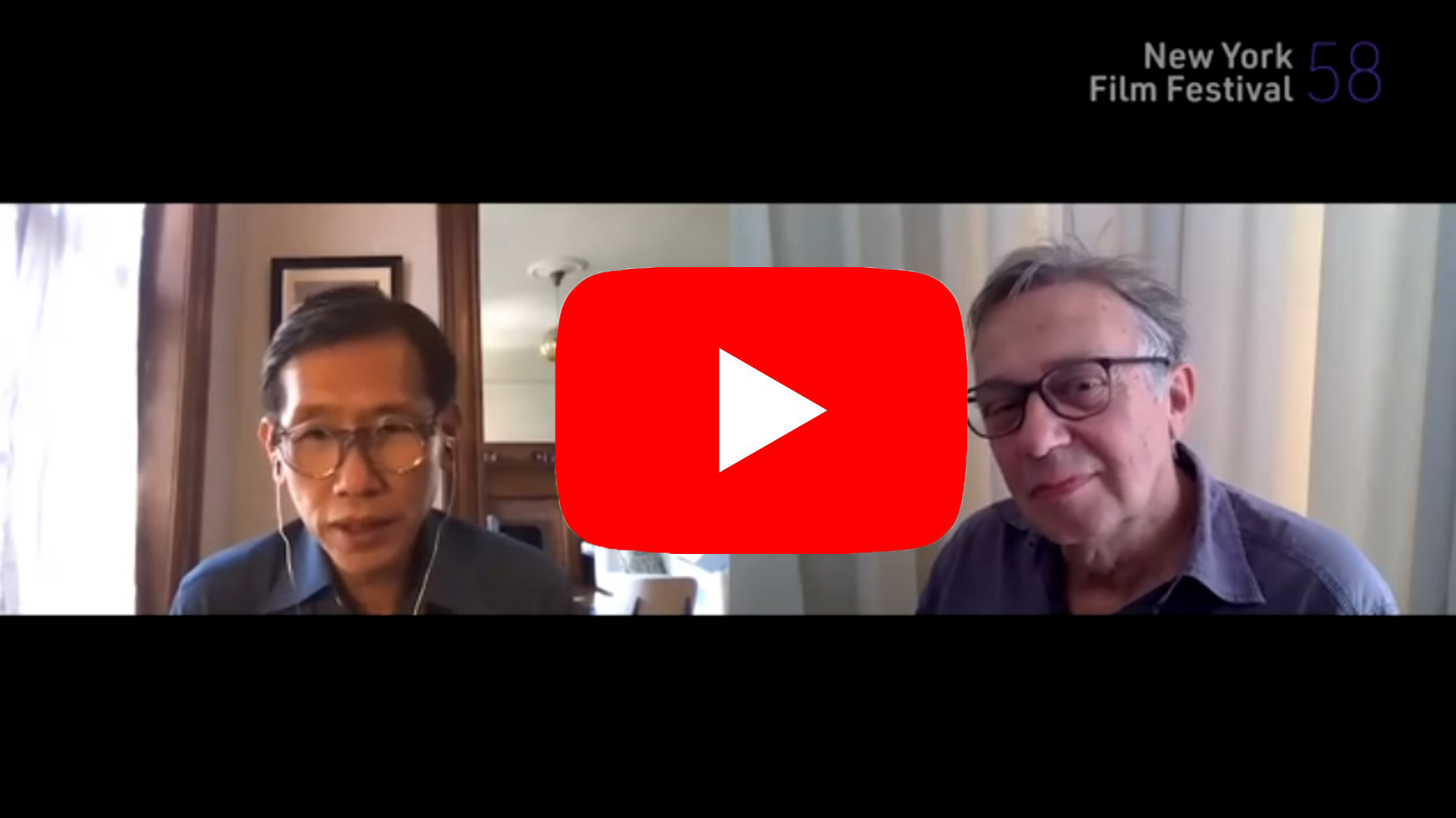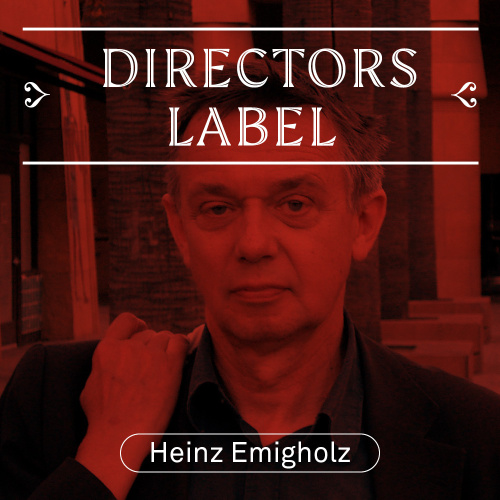
The Lobby
GER/Argentina 2020, 76 min
A sardonic distillation of themes revolving around death, consciousness and human relationships. The sequel to DIE LETZTE STADT – morbid, confrontational and hilarious.
Synopsis
“There is no Here here.” A character simply named “Old White Male” (John Erdman) holds court in the lobbies of various apartment buildings in Buenos Aires and expounds with measured disgust on death, consciousness, and the state of contemporary human relations. The man’s mostly unsolicited remarks form an unsparing, stitched-together modern-day monologue that alternates between absurd and chilling, reasonable and grotesque. Filmed in Buenos Aires in October 2019, Heinz Emigholz’s spare continuation – and sardonic distillation – of certain themes explored in THE LAST CITY is morbid, confrontational, and hilarious.
Streaming-Info
Rent or buy the movie on our Vimeo channel. For other providers, see “Watch Movie”.
Language: English, Subtitles: Spanish
Film kaufen
VOD
451-Vimeo
Press reviews
Uno puede imaginarse una galaxia en la que todas las películas sean como The Lobby, todas explosivas, de una inteligencia inédita, con una singularidad rabiosa que bloquea cualquier posible reiteración o apropiación estratégica. La última película de Heinz Emigholz está filmada en distintos lobbys de Buenos Aires y tiene a un único intérprete que habla todo el tiempo a cámara o hacia fuera del plano, pero siempre se dirige al público. La naturaleza del vínculo es ambigua: no sabemos bien en qué clase de lugar estamos, quién es el tipo ni por qué nos habla de la vida y la muerte y, cada tanto, nos agrede, nos pone a prueba o, a veces, trata de transmitir alguna especie de saber. La película discurre en ese estado de incertidumbre: la intensidad de las escenas, la exasperación que produce cada nueva intervención del tipo son los signos de un cine sin precedentes, que nunca vimos ni, seguramente, volvamos a ver.
Emigholz es un director arquitectónico que entiende el espacio como pocos otros cineastas (salvo tal vez por Fritz Lang). Donde cualquier director ve un escenario, es decir, un soporte o una ilustración de lo que sucede en el relato, Emigholz encuentra un mundo autosuficiente que reclama un movimiento inverso: la película debe adecuarse ella misma a las condiciones del sitio, el cine obedezca las solicitaciones del entorno. Esto se entiende enseguida en los primeros minutos de The Lobby: las cosas que dice el tipo sobre la vida, la muerte y sobre los saberes secretos que rodean el tránsito entre uno y otro, de ida y de vuelta, reverbera en las paredes del hall del edificio y llena el lugar de un clima inquietante. Pero lo contrario también es cierto: es la configuración misma del sitio lo que permite hablar en esos términos de ciertos temas, la ventana que da a un garage, un pasillo de madera largo que se deshace en el medio de las sombras (¿termina? ¿A qué plano de la existencia conduce?), la puerta del garage que se abre atrás del vidrio mientras el hombre monologa. No se trata, entonces, de la metáfora más obvia, la del lobby como espacio intermedio que conecta el adentro con el afuera y que refiere a los misterios sobre la conciencia con los que insiste el hombre; o, en todo caso, no se trata solo de eso, sino de cómo los lobbys elegidos permiten realizar ciertos encuadres aberrantes, juegos (algo pueriles, hay que decirlo) con espejos, o planos que incluyen, entre entrada, pasillos y salas, diferentes capas de espacio que enrarecen la percepción.
Entonces uno comprende por dónde circula todo en la película de Emigholz, el director que hace un cine en el que todo movimiento pero nunca mueve la cámara. Hay un cine nuevo que inventa formas: planos, acrobacias visuales, maneras de narrar. Pero hay otro, bastante más raro, que en algún momento del pasado recibió el mote de vanguardista: es el cine que reinventa ya no sus propias materiales sino la forma de comunicarse con su público, o sea, que trabaja no tanto sobre la pantalla sino en lo que sucede por fuera, directamente sobre el espectador (esto fue, a fin de cuentas, la vanguardia: no tanto la renovación de un repertorio estético como la transformación de la relación que el arte mantenía con su audiencia). Si The Lobby no se parece a nada que hayamos visto ni vayamos a ver es porque es porque somos la sustancia que modela y tironea y trastorna la película, porque es sobre nosotros que opera Emigholz, porque después de verla ya no soy el mismo. (Diego Maté, cinemarama.wordpress.com)
THE LOBBY is a virtuoso cine-monologue of an indelibly witty and stimulating stripe, self-referential and self-deconstructing. – Neil Young, Viennale
Filmed in Buenos Aires in October 2019, Heinz Emigholz’s spare continuation – and sardonic distillation – of certain themes explored in The Last City is morbid, confrontational, and hilarious. – New York Film Festival 2020
Awards and Festivals
- New York Film Festival 2020
- Viennale 2020
- Buenos Aires International Film Festival (BAFICI) 2021
- Jeonju International Film Festival 2021
- Underdox Filmfestival 2021
- Black Canvas FCC 2021 - Competition
Additional Texts
Prologue
by Heinz Emigholz
There are these lobbies in elegant apartment buildings in former rich cities like Buenos Aires. They host mirrors, seatings, lamps and walls made out of precious materials, wood, marble, glass and metal, and sometimes plants and bouquets of flowers. They represent wealth, order and security, and they are walk-through rooms to the living spaces of the people or to the streets. Every now and then they are waiting areas, too. Someone sits there and waits – for better weather, for a friend or for relatives, or he sits there from morning to night, just for good.
Catalogue-text from New York Film Festival 2020
“There is no Here here.” A character simply named “Old White Male” (John Erdman) holds court in the lobbies of various apartment buildings in Buenos Aires and expounds with measured disgust on death, consciousness, and the state of contemporary human relations. The man’s mostly unsolicited remarks form an unsparing, stitched-together modern-day monologue that alternates between absurd and chilling, reasonable and grotesque. Filmed in Buenos Aires in October 2019, Heinz Emigholz’s spare continuation – and sardonic distillation – of certain themes explored in THE LAST CITY is morbid, confrontational, and hilarious.
Neil Young on THE LOBBY
While officially regarded by prolific maestro Heinz Emigholz as a “sequel” to THE LAST CITY – completing a loose trilogy begun with STREETSCAPES [DIALOGUE] – this one-man tour-de-force starring veteran actor John Erdman functions splendidly on its own. Erdman, whose previous work down the decades includes collaborations on seminal dance and performance-art pieces by Yvonne Rainer and Robert Wilson, here incarnates a hyper-articulate character simply credited as “Old White Male.” Our protagonist is presented in comfortable Buenos Aires apartment-building lobbies, holding forth in erudite, sardonic fashion on mortality – and through this dark prism examining the state of humanity. Ranging freely across matters philosophical, theological and psychological, Emigholz stakes out word-centric territory somewhere between Camus’ “The Fall” and Malle’s MY DINNER WITH ANDRE. THE LOBBY is a virtuoso cine-monologue of an indelibly witty and stimulating stripe, self-referential and self-deconstructing. Once again teaming up productively with Jonathan Perel, Emigholz crafts an elegant frame for a sardonic, occasionally poetic exploration of fundamental ideas.
Video Extra
On The Lobby, Buenos Aires, and Architecture | NYFF58
Director Heinz Emigholz discusses The Lobby with NYFF Director of Programming Dennis Lim.

NYFF58 Talk: Christian Petzold & Heinz Emigholz
about their formative experiences of cinema, how the themes of architecture, history, and capitalism figure in their work, and what they love and hate in film culture right now. Moderated by NYFF Director of Programming Dennis Lim.

Watch Movie
VOD
451-Vimeo
Credits
Director and Screenplay
Heinz Emigholz
With
John Erdman
Director of Photography
Heinz Emigholz, Jonathan Perel
Editor
Till Beckmann, Heinz Emigholz
General Assistance
Ivan Murgic
Original Sound and Location Management
Esteban Bellotto
Sound Design und Mixing
Christian Obermaier, Jochen Jezussek
Post Production
Till Beckmann
Produced by
Jonathan Perel, PYM Films
Distribution Details
Distribution only to international festivals (no cinema distribution)
Screening Format
DCP (2K, 25 fps, 5.1)
Aspect Ratio
1.178:1 (16:9)
Language
English
Promotion Material
A1 poster
License Area
Worldwide






